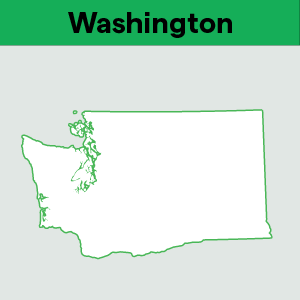Does Amazon Inventory Placement Service affect sales tax nexus?
by November 6, 2024
We’ve had a few customers ask us if using Amazon’s FBA Inventory Placement Service could simplify their sales tax needs. We looked into and the short answer is: While Amazon FBA Inventory Placement could simplify your life as a seller, whether or not it can simplify your sales tax life is a big “it depends.”
Let’s have an in-depth look:
What is Amazon Inventory Placement?
Amazon Inventory Placement is a service that allows FBA sellers to send shipments to just one warehouse, rather than splitting them up and sending them to several warehouses.
The pros of Amazon Inventory Placement can save you lots of time and headache when packing your shipments up. Not to mention, you may be able to ship to an Amazon fulfillment center closer to your location, saving you significant shipping costs.
The SellerEngine blog also detailed some more pros for Amazon Inventory Placement users:
Quicker receiving – You can get your products to Amazon and into the hands of your customers faster. Also, some warehouses are notoriously slow at receiving and you can, perhaps, avoid these
Reduced human error – Fewer shipments mean less chance of sending the wrong shipment to the wrong place. It happens to everyone and could be a costly mistake!
(Visit the SellerEngine blog for the whole list.)
Of course, Amazon Inventory Placement has cons, too. The following fees apply:
Also, you may see some delays in getting your inventory received in its final fulfillment center home (and thus sold to customers.) We’ll talk more about that below.
Will Amazon Inventory Placement simplify your sales tax liability?
Our customers have asked about Amazon Inventory Placement with one key thing in mind: reducing the states in which they have sales tax nexus.
Storing inventory in an Amazon fulfillment center creates sales tax nexus in a state (with the key recent exception of Virginia.) We’ve found that most Amazon FBA sellers have inventory stored in Amazon fulfillment centers in at least 10 states. That means 10 sales tax permits, and dealing with sales tax rules and filing sales tax in 10 different states. We don’t blame anybody for trying to simplify that!
But, Amazon’s Inventory Placement service doesn’t mean that you simply ship your inventory to one Amazon fulfillment center and it stays put there. Amazon then ships your inventory to other fulfillment centers. After all, their goal is to have the products people want close by so they can deliver it as quickly as possible.
In other words, you may ship all of your products to one warehouse, but then see Amazon hold them in reserve for a week while they distribute them out among other warehouses. Depending on your business structure, this may or may not hurt your bottom line. And then you’ll also need to pull your Amazon Inventory Event Detail Report or use TaxJar to determine where your products have ended up (and thus where you have sales tax nexus.)
Conclusion
The answer to almost every open-ended question when it comes to sales tax is: “It depends.”
While Amazon Inventory Placement could simplify your sales tax, it most likely won’t mean you only have sales tax nexus in the state where you now ship all of your products.
In the end, you have to make the business decision on whether or not using this service is right for your bottom line.
I would be interested in hearing from any Amazon sellers who have opted-in to this service. Please note: This blog is for informational purposes only. Be advised that sales tax rules and laws are subject to change at any time. For specific sales tax advice regarding your business, contact a tax advisor.









